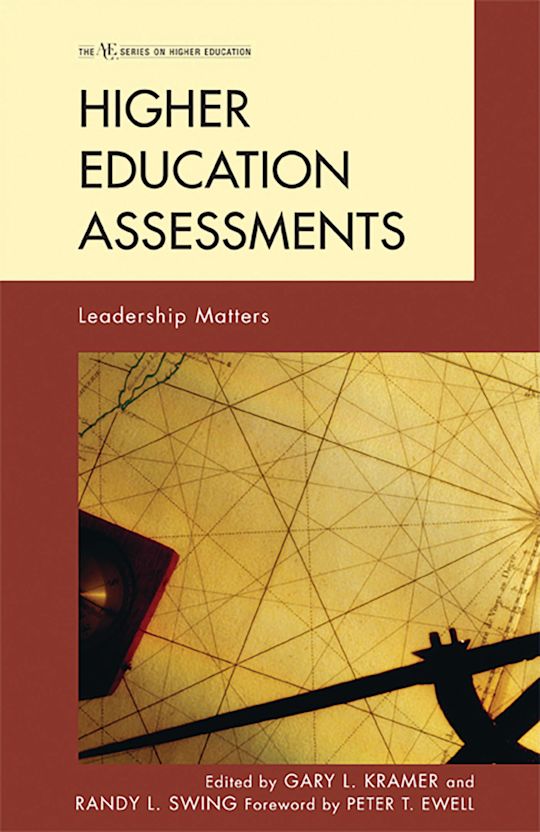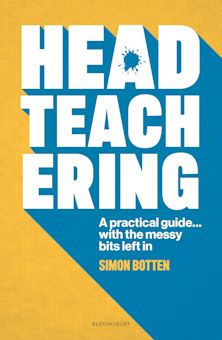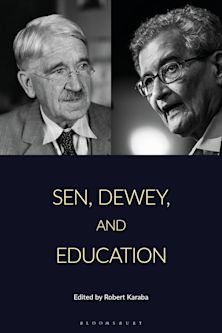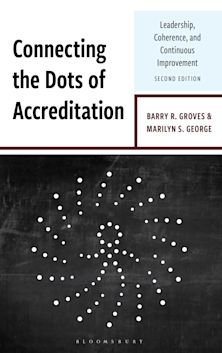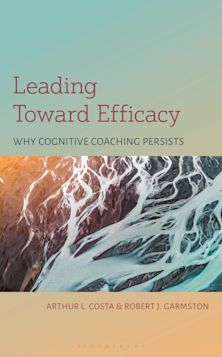- Home
- ACADEMIC
- Education
- Leadership and Management
- Higher Education Assessments
Higher Education Assessments
Leadership Matters
Gary L. Kramer (Anthology Editor) , Randy L. Swing (Anthology Editor) , Raymond Barclay (Contributor) , Trudy Bers (Contributor) , Bryan D. Bradley (Contributor) , Peter J. Gray (Contributor) , Coral Hanson (Contributor) , Trav D. Johnson (Contributor) , Jillian Kinzie (Contributor) , Thomas E. Miller (Contributor) , John Muffo (Contributor) , Danny Olsen (Contributor) , Russell T. Osguthorpe (Contributor) , John H. Schuh (Contributor) , Kay H. Smith (Contributor) , Vasti Torres (Contributor)
Higher Education Assessments
Leadership Matters
Gary L. Kramer (Anthology Editor) , Randy L. Swing (Anthology Editor) , Raymond Barclay (Contributor) , Trudy Bers (Contributor) , Bryan D. Bradley (Contributor) , Peter J. Gray (Contributor) , Coral Hanson (Contributor) , Trav D. Johnson (Contributor) , Jillian Kinzie (Contributor) , Thomas E. Miller (Contributor) , John Muffo (Contributor) , Danny Olsen (Contributor) , Russell T. Osguthorpe (Contributor) , John H. Schuh (Contributor) , Kay H. Smith (Contributor) , Vasti Torres (Contributor)
You must sign in to add this item to your wishlist. Please sign in or create an account
Description
Higher Education Assessments: Leadership Matters reflects the work of a select group of researchers, scholars, and practitioners in higher education assessment with the goal of identifying strategies that assist senior campus leaders as they respond to the challenges of a changing economic landscape and political climate. The contributors, experts in the field, bring to the forefront key issues relevant to advancing assessments in higher education-principles that culminate in improving student learning and development. Kramer and Swing provide a tool for presidents, vice presidents, provosts, and deans to determine which areas of assessment matter most in their institutions and how they can measure progress in aligning claims with outcomes. The contributors deftly address assessment in student affairs, documentation of student learning, student engagement to bridge learner outcomes, assessment in the disciplines, assessments that can transform a culture, and putting students first as partners in the learning enterprise. In doing so, they have focused on what a campus president and his or her team need to know and do to lead assessment successfully on campus and as they set the tone for and facilitate institutional assessments.
Table of Contents
Chapter 2 Acknowledgments
Chapter 3 PREFACE (Purpose, Audience, Book Organization and About the Authors)
Part 4 Part 1 - LEADING ASSESSMENTS ON THE CAMPUS
Chapter 5 1. Championing the Assessment of Learning: The Role of Top Leaders
Chapter 6 2. Assessment Frameworks that Can Make a Difference in Achieving Institutional Outcomes
Part 7 Part 2 - BRIDGING LEARNER OUTCOMES: FINDING COMMON GROUND
Chapter 8 3. Assessment and Student Diversity
Chapter 9 4. Assessments in Student Services that Foster Student and Program Success
Chapter 10 5. Documenting Student Learning: Valuing the Process
Chapter 11 6. Learning Outcomes, Assessment, And Program Improvement
Part 12 Part 3 - ASSESSMENTS THAT TRANSFORM THE LEARNING CULTURE
13 7.Student Engagement and a Culture of Assessment
14 8. Assessment in the Disciplines
15 9. Assessment That Transforms an Institution
16 10. Putting Students First as Partners in the Learning Enterprise
17 EPILOGUE
18 Subject Index/Name Index
Product details
| Published | 16 Oct 2010 |
|---|---|
| Format | Ebook (Epub & Mobi) |
| Edition | 1st |
| Extent | 288 |
| ISBN | 9781442206229 |
| Imprint | Rowman & Littlefield |
| Series | The ACE Series on Higher Education |
| Publisher | Bloomsbury Publishing |
About the contributors
Reviews
-
From the Foreword: The challenge of the next decade will be not just to take stock of student learning, but to get better at generating it, intentionally, systematically, and continuously. The chapters in this volume are designed to remind that the management of assessment is much like the management of anything else. What is needed is an explicit plan, consistent with the institution's mission and values, that documents in sufficient detail what needs to be done and who is to do it....
Peter T. Ewell, vice president, National Center for Higher Education Management Systems (NCHEMS)
-
Because Higher Education Assessments is aimed at leaders, the book fills a critical need and void. A number of points drive the power of the book: a connection to the mission and a well-defined broad spectrum of diversity that success should result in more support for what works and that a systems approach allows institutions to think about rewarding successful programs with additional resources.
Catherine Andersen, associate provost, Gallaudet University
-
The message of the book frames the assessment vehicle for better education, for better learning, for better program design.
Andrew T. Phillips, academic dean and provost, United States Naval Academy
-
If anyone were to ask me who needs another book on assessment? I would answer, we do! Presidents, provosts, and members of the senior leadership team whose task is not how to do assessment but how assessment should be done with purpose. That purpose is to align all that we do so that in the end we will fulfill the fundamental purposes of our institutions. The book is a winner!
Earl H. Potter, president, St. Cloud State University
-
I can comfortably say I am impressed by the energy, thinking and empirical work that has evolved and is described in this book regarding the partnership in the learning enterprise…the emergence of the novel idea of putting students first in assessments…what an important concept.
Joseph Crowley, president emeritus, University of Nevada, Reno
-
From the Foreword:
The challenge of the next decade will be not just to take stock of student learning, but to get better at generating it, intentionally, systematically, and continuously. The chapters in this volume are designed to remind that the management of assessment is much like the management of anything else. What is needed is an explicit plan, consistent with the institution's mission and values, that documents in sufficient detail what needs to be done and who is to do it.Peter T. Ewell, vice president, National Center for Higher Education Management Systems (NCHEMS)









